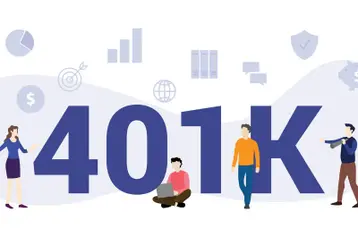What Small Businesses Need to Know About Offering Retirement Plans

Based on Labor Department statistics only 53% of employees at small companies have access to a workplace retirement plan, compared with 85% of employees at large companies. States such as California, Illinois, and Oregon have implemented mandates requiring employers to offer their employees a retirement plan or be forced to participate in their state offered plan. Other states, such as New York, are looking to implement similar mandates.
California requires that starting June 30, 2020, employers either sponsor a retirement plan or participate in CalSavers, a state-mandated retirement savings program. The program features a three-year phased rollout approach with staggering deadlines for registration based on employer size.
At the federal level, the SECURE Act (Setting Every Community Up for Retirement Enhancement Act (H.R. 1994)) was signed into law on December 20, 2019. One of the key components of the SECURE Act is that employers will no longer be required to have a common characteristic (such as all being part of an association or professional organization) to join a pooled employer plan, known as a Multiple Employer Plan (MEP). MEPs are viewed as a great solution for small employers where a third party assumes the plan administrator role, handling all of the 401(k) administration and assuming much of the fiduciary liability. This is a big advantage for many small business owners who do not have the time or technical background to handle 401(k) administration. Since a MEP pools assets of unrelated employers, it has the added benefit of providing lower administrative costs and added plan features that may only be available to larger corporate plans.
In a recent survey conducted by Nationwide Retirement Institute, 84% of small business owners responded that the SECURE Act would make it easier for them to offer a 401(k) plan. Nearly 80% felt it would level the playing field with larger corporations, allowing them to offer a more competitive plan. This has become particularly important with the current labor market where employers are focused on offering the most competitive benefits package to attract and retain top employee talent.
Professional Employer Organizations (PEOs) have long had the ability to sponsor MEPs, a great advantage for PEO clients. TriNet serves as the plan administrator for a large billion-dollar MEP. Customers who participate in the plan have the benefit of being able to offer a 401(k) plan to their employees without having to incur any of the plan administrative responsibilities. We are here to help hundreds and thousands of small and medium size businesses who are the backbone of our economy.
To learn more, contact our HR services experts
This communication is for informational purposes only; it is not legal, tax or accounting advice; and is not an offer to sell, buy or procure insurance.
This post may contain hyperlinks to websites operated by parties other than TriNet. Such hyperlinks are provided for reference only. TriNet does not control such websites and is not responsible for their content. Inclusion of such hyperlinks on TriNet.com does not necessarily imply any endorsement of the material on such websites or association with their operators.






